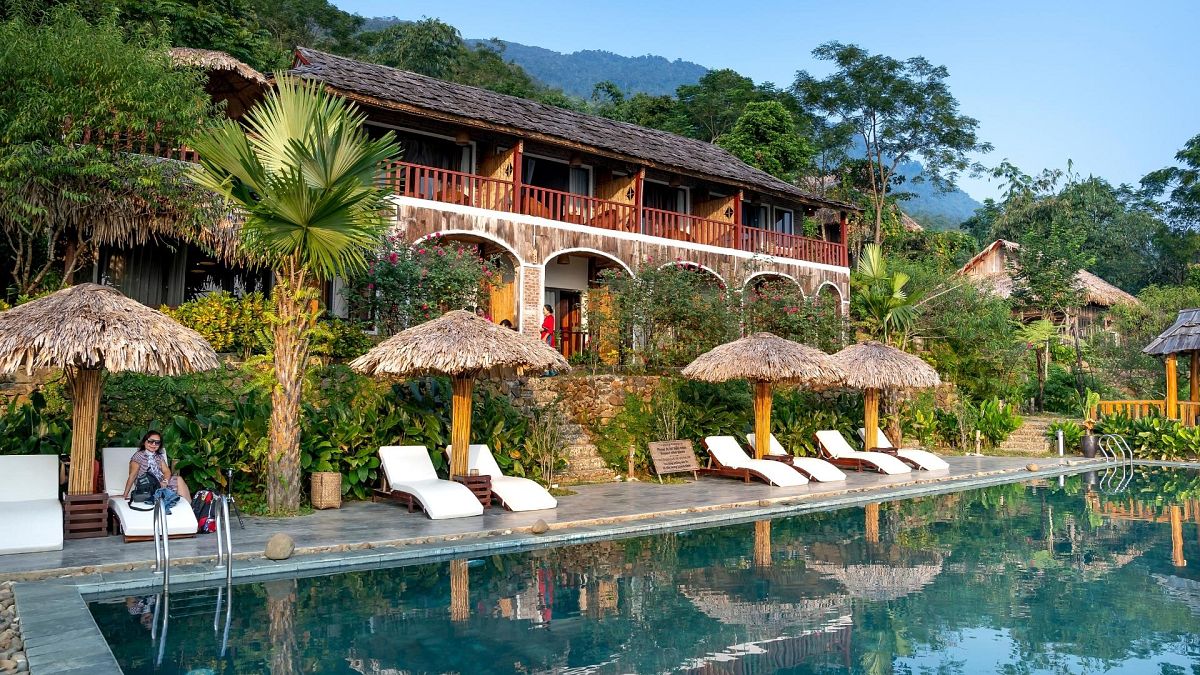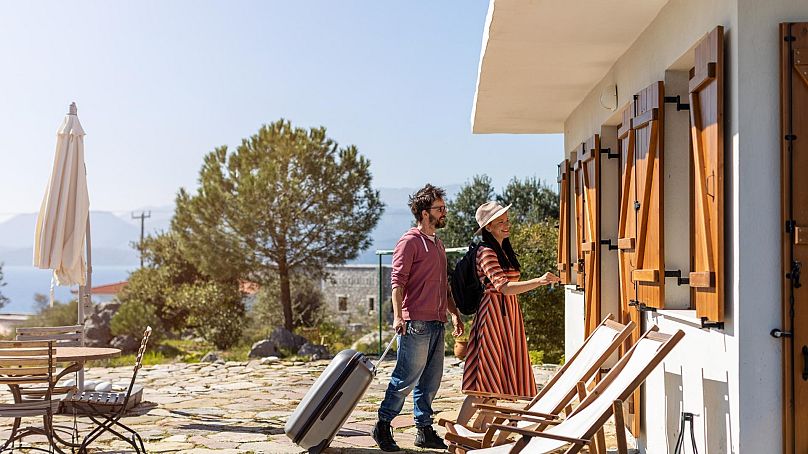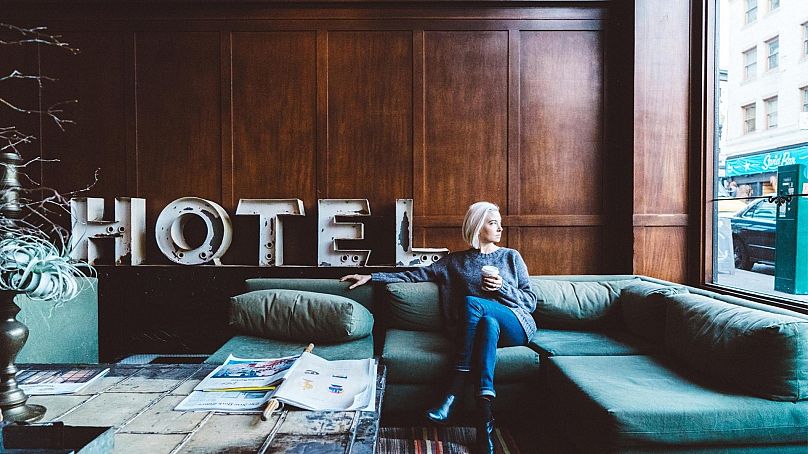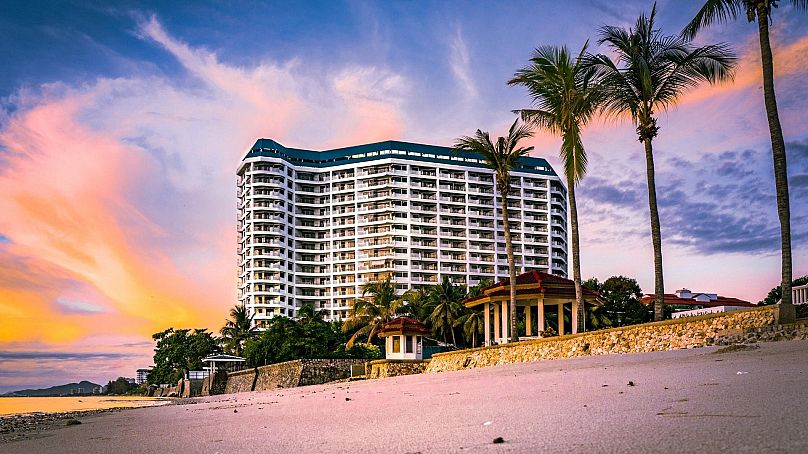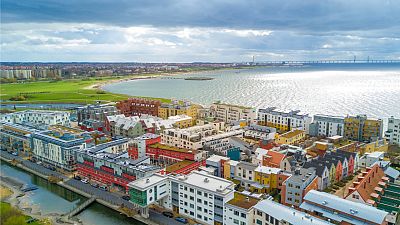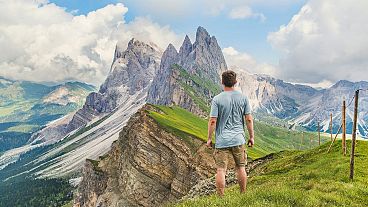As conscious travellers choose more sustainable options, can big hotel brands keep up?
Choosing where to stay on holiday is one of the most exciting and stressful parts of your trip.
While some of us are content with cleanliness and a good location, others need room service and a balcony overlooking the sea.
But with sustainable and conscious travel becoming more mainstream, we might soon be presented with different choices when we book our accommodation.
How to book a sustainable holiday
If you want to travel in a more sustainable way, many booking sites now let you search for green options. Skyscanner can help you search for flights with fewer Co2 emissions, while Booking.com launched its Travel Sustainable badge last year. This new initiative enables users to choose accommodation that's been deemed eco-conscious by over 30 third-party organisations.
Being a conscious traveller is about more than just protecting the environment though. It means considering the people that live in the places you visit too.
A quick search on Booking.com for accommodation in Manhattan shows that most big hotels have the Travel Sustainable badge. While they may use eco-friendly products and ask you to use your towel more than once, this doesn't make them the most conscious choice.
Staying in a locally-owned boutique hotel or apartment usually ensures that the money goes back into the community you are visiting.
The employees are often locals, the products and produce are locally sourced, and there is less chance of employee exploitation.
Staying in an apartment forces you to make greener choices too. You have to buy your food locally, and if you choose independent grocery shops, you’ll be supporting individuals not big business, and will feel more connected with the surrounding** community** as a result.
The issue with Airbnb
Sadly, this tactic has its limitations too. Companies like Airbnb have contributed to many cities' housing crises over the past decade. The properties are not always owned by locals, meaning that the money generated is often sent out of the country.
Airbnb has also made it more desirable for people to buy multiple properties and rent them out, a situation that is extremely common in the UK.
A recent report found that first-time buyers from popular tourist areas like Cornwall were forced to move away from their hometowns because properties were bought by investors or as holiday homes.
So while choosing an independent property or hotel may seem like the more conscious choice, it doesn't always work out that way.
Being a sustainable and conscious traveller is complicated, and you might find you have to sacrifice one cause to champion another. You can't always be environmentally friendly and ethical. But that's okay. It's the intention that counts.
How are big hotel brands reacting to the changing face of travel?
Most hotel chains aren’t capable of switching to a sustainable model instantly. But in a world where the climate crisis is constantly in the news, these brands have to do something to retain their customers and adapt to changing consumer needs.
Bryan Oknyansky, a senior designer at Dexter Moren Associates says he has noticed that "many brands are already implementing sustainable measures such as reducing waste in their supply chain and reducing energy use with intelligent building management systems."
While he acknowledges that "the bigger or legacy brands are not as nimble as smaller brands, they do stand to make the biggest changes because of the scale of their supply chains and operations."
What's next for holiday accommodation?
Bryan believes "the next hurdle for brands large and small is improving the guest experience as a result of the implementation of sustainable initiatives.
“brands [are] embarking on initiatives to analyse how guests use their hotels to gain insight into how they can optimise their hotel operations to achieve sustainable ends."
And when it comes to private rental properties, we are already seeing noise about the state of the housing market, but it's not enough to completely turn people off renting a private property. Besides, not every house is owned by a property hoarder.
The power is in our hands
Despite pledges from governments and holiday companies, travel trends are primarily dictated by the traveller.
It is a multi-trillion euro industry and what we say goes. If we all start demanding resorts become fully sustainable, then that is what the big brands will have to deliver.
But if we don't pay attention to where our money goes or the local communities that suffer because of tourism, no one will.
We live in a time where so much is out of our control. But sustainable and conscious travel is something we can control.
So enjoy your holiday, but just remember the small things you do make a big difference.
